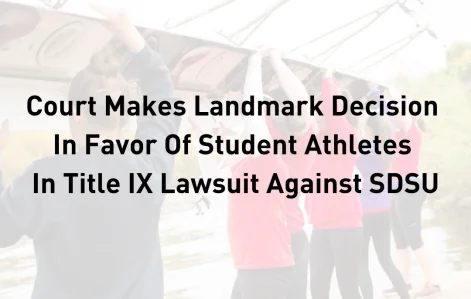San Diego (November 27, 2013) – On April 17, 2013, the 9th Circuit issued an Order reversing the district court’s denial of an Anti-SLAPP motion to strike a defamation counterclaim filed by plaintiff Tarla Makaeff against Trump University, and today the 9th Circuit issued an Order denying Trump University’s motion for en banc review.
In April 2010, plaintiffs’ counsel Zeldes Haeggquist & Eck, LLP and Robbins Geller Rudman & Dowd filed a consumer class action against Trump University in federal court, alleging that Trump University made false and misleading statements in its advertising and real estate seminars in violation of state and federal laws. In response, Trump University attempted to intimidate plaintiff Tarla Makaeff into dropping her lawsuit by filing a defamation counterclaim against her. In the defamation action, Trump University claimed that Ms. Makaeff defamed Trump University by lodging complaints with the Better Business Bureau and other government agencies and on an Internet consumer website about the marketing and sale of its real estate seminars.
In response, plaintiffs filed an Anti-SLAPP motion, asking the court to dismiss the defamation claim because the lawsuit was brought in retaliation for Ms. Makaeff exercising her right to free speech. In August 2010, the district court denied Plaintiffs’ Anti-SLAPP motion, and plaintiffs appealed.
In the Ninth Circuit’s April 17, 2013 ruling, the Court noted that statements by consumers, such as Ms. Makaeff, relate to an “issue of public interest” and are protected activity under the Anti-SLAPP statute because they are “a warning not to use [the company’s] services.” The Court also found that Trump University was a limited purpose public figure because a “public controversy existed over Trump University’s educational and business practices when Makaeff made her statements about them.” The court held that “large scale, aggressive advertising can inject a person or entity into a public controversy that arises from the subject of that advertising,” and that “Trump University conducted an aggressive advertising campaign in which it made controversial claims about its products and services,” and that there was a “direct relationship between Trump University’s promotional messages and Makaeff’s allegedly defamatory statements.” The Ninth Circuit stated that: “[H]aving traded heavily on the name and fame of its founder and chairman, Trump University was in no position to complain if the public’s interest in Trump fueled the flames of the legitimate controversy that its business practices engendered.”
In regard to Trump University’s contention that Makaeff previously said positive things about Trump University, the court eloquently stated: “As the recent Ponzi-scheme scandals involving onetime financial luminaries like Bernard Madoff and Allen Stanford demonstrate, victims of con artists often sing the praises of their victimizers until the moment they realize they have been fleeced. Makaeff’s initial enthusiasm for Trump University’s program is not probative of whether she acted with actual malice.”
On November 27, 2013, the Ninth Circuit Court of Appeals denied Trump University’s petition for rehearing in a lengthy order drafted by Judge Wardlaw and Callahan (joined by Judges Fletcher and Gould); there is also a lengthy dissent by Judge Watford (joined by Judges Kozinski, Paez and Bea). In its opinion, the Court noted that: “Every circuit that has considered the issue has agreed with our conclusion in Newsham that anti-SLAPP statutes like California’s confer substantive rights under Erie.” The Court concluded that Newsham and Batzel were correctly decided, that the purpose of an Anti-SLAPP motion is to “determine whether the defendant is being forced to defend against a meritless claim,” and that if Anti-SLAPP motions were not permitted in federal court, it would “put the federal courts at risk of being swept away in a rising tide of frivolous state [defamation] actions that would be filed in our circuit’s federal courts.”
The Ninth Circuit stated that: “Trump University’s counterclaim was obviously designed to overwhelm Makaeff by making it more burdensome and expensive for her to pursue her deceptive business practices claims against Trump University. Makaeff’s motion to strike concerned the frivolity of Trump University’s allegation that her speech about its deceptive business practices was defamatory; its very purpose was to determine whether Trump University’s counterclaim was designed to chill Makaeff’s valid exercise of her First Amendment rights.”
To schedule your free initial consultation, contact us online or call (619) 342-8000 today!





